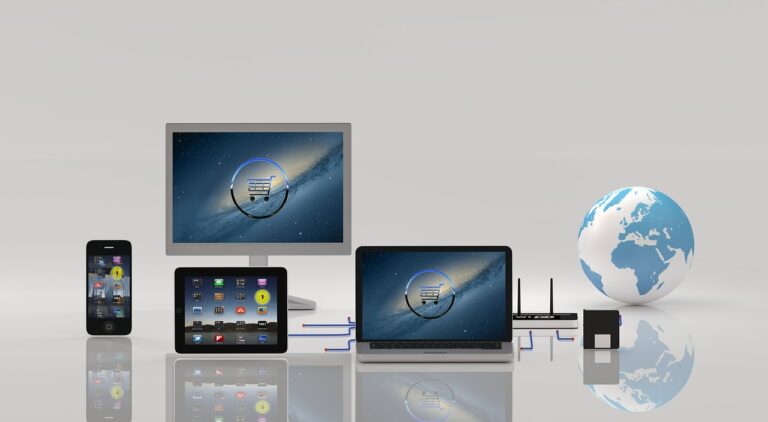Exploring the Role of Quantum Computing in Electronics Manufacturing
cricbet99.com sign up, Sky1exchanges Login, cricket bet99: Quantum computing is a groundbreaking technology that has the potential to revolutionize various industries, including electronics manufacturing. With the ability to process vast amounts of data and solve complex problems at incredible speeds, quantum computing holds promise for accelerating research and development processes, optimizing supply chains, and improving overall efficiency in electronics manufacturing.
In this article, we will explore the role of quantum computing in electronics manufacturing and how it is shaping the future of the industry.
Understanding Quantum Computing
Before delving into the specific applications of quantum computing in electronics manufacturing, it is essential to understand the basic principles behind this revolutionary technology. Quantum computing leverages the principles of quantum mechanics to process information in quantum bits, or qubits, rather than the traditional bits used in classical computers.
Qubits can exist in multiple states simultaneously, thanks to a phenomenon known as superposition, allowing quantum computers to perform computations at a much faster rate than classical computers. Additionally, qubits can be entangled, enabling quantum computers to solve highly complex problems that are intractable for classical computers.
Applications of Quantum Computing in Electronics Manufacturing
1. Simulation and Optimization
One of the most significant advantages of quantum computing in electronics manufacturing is its ability to simulate and optimize complex systems. For example, quantum computers can model the behavior of materials at the atomic level, allowing manufacturers to develop new materials with specific properties tailored to their needs.
Furthermore, quantum computing can optimize supply chains by analyzing vast amounts of data to identify the most efficient routes for sourcing raw materials and components. This can lead to cost savings and improved overall efficiency in the manufacturing process.
2. Machine Learning and Artificial Intelligence
Machine learning and artificial intelligence are increasingly being used in electronics manufacturing to improve product quality and automate production processes. Quantum computing can enhance these capabilities by processing and analyzing massive datasets more efficiently than classical computers.
By leveraging quantum machine learning algorithms, manufacturers can identify patterns and insights from data that were previously inaccessible. This can lead to faster product development cycles, improved quality control, and enhanced predictive maintenance for manufacturing equipment.
3. Cryptography and Data Security
Data security is a critical concern for electronics manufacturers, especially as the industry becomes increasingly connected and reliant on digital technologies. Quantum computing has the potential to enhance cybersecurity measures by developing unbreakable encryption algorithms based on quantum principles.
Quantum cryptography can secure sensitive data transmissions and protect intellectual property from cyber threats. Additionally, quantum computers can break existing encryption codes, prompting a need for the development of quantum-resistant cryptographic solutions to safeguard data in the future.
Challenges and Opportunities
While the potential of quantum computing in electronics manufacturing is immense, there are still significant challenges that need to be addressed to fully realize its benefits. For instance, developing scalable quantum hardware with low error rates remains a significant barrier to widespread adoption of quantum computing in the industry.
Furthermore, the skills gap in quantum computing expertise poses a challenge for electronics manufacturers looking to leverage this technology effectively. Training and developing a workforce with the necessary skills to operate quantum computers and develop quantum algorithms will be essential for successful integration into manufacturing processes.
Despite these challenges, the opportunities presented by quantum computing in electronics manufacturing far outweigh the obstacles. By investing in research and development, collaborating with quantum computing experts, and staying abreast of the latest technological advancements, manufacturers can harness the power of quantum computing to stay competitive in an increasingly digital and interconnected world.
FAQs
1. What is the difference between quantum computing and classical computing?
Quantum computing differs from classical computing in its ability to process information in qubits rather than traditional bits. Qubits can exist in multiple states simultaneously, allowing quantum computers to solve complex problems at a much faster rate than classical computers.
2. How can quantum computing improve supply chain management in electronics manufacturing?
Quantum computing can optimize supply chains by analyzing vast amounts of data to identify the most efficient routes for sourcing raw materials and components. This can lead to cost savings, reduced lead times, and improved overall efficiency in the manufacturing process.
3. Is quantum computing secure for data transmission in electronics manufacturing?
Quantum cryptography offers a secure means of data transmission by developing unbreakable encryption algorithms based on quantum principles. This can safeguard sensitive data and protect intellectual property from cyber threats in the manufacturing industry.
4. What are the key challenges facing quantum computing in electronics manufacturing?
Developing scalable quantum hardware with low error rates and addressing the skills gap in quantum computing expertise are significant challenges facing the adoption of quantum computing in electronics manufacturing. Overcoming these obstacles will be crucial for realizing the full potential of quantum computing in the industry.







